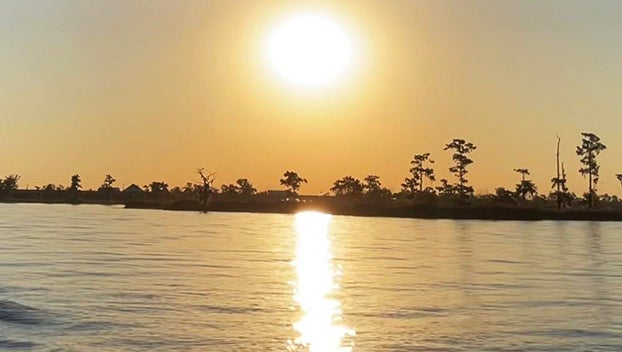Bill proposing moratorium on CO2 sequestration in Lake Maurepas moves forward
Published 3:34 pm Saturday, May 6, 2023
|
Getting your Trinity Audio player ready...
|
MANCHAC — A bill proposing a moratorium be placed on carbon dioxide sequestration projects on Lake Maurepas and in the Maurepas Swamp Wildlife Management Area is moving forward in the Louisiana House of Representatives.
This week, the House of Representatives’ Committee on Natural Resources and Environment considered several bills concerning Lake Maurepas and a carbon sequestration project planned by industrial gas company Air Products.
Once seismic testing is completed in six sections of the lake, Air Products will have the data needed to determine whether Lake Maurepas would be a suitable site for carbon sequestration to begin in quarter four of 2026.
By the last week of April, Air Products had completed two-thirds of its survey work on Lake Maurepas. The third area of subsurface seismic testing was completed in early April. Preparations to prepare the next area on the southeastern side of the lake for seismic testing were paused from May 4 through May 8 for the Tickfaw 200.
The project has drawn public scrutiny from those who live and work on the lake. Local government representatives in St. John the Baptist, Tangipahoa and Livingston parishes have passed resolutions voicing their opposition to the project.
The Committee on Natural Resources and Environment voted to move forward member William “Bill” Wheat, Jr.’s HB 267, which proposes a 10-year moratorium on carbon dioxide sequestration projects on Lake Maurepas and the surrounding Swamp Wildlife Management Area.
Wheat said the Air Products project has been “at best, poorly rolled out and hastily implemented,” from the permitting process to information sharing with public officials and community involvement.
“The result is a complete and well-deserved lack of trust,” Wheat said. “House Bill 267 is not arguing the merits of carbon sequestration. I want to make that clear. Our concerns are about local issues concerning our lake and our swampland.”
Air Products spokesperson Stanley Bienemy, who previously served as economic development director in St. John Parish, addressed concerns regarding lack of communication with the public.
He said the company has met with Friends of the Manchac Greenway, Rotary Club, the St. John Parish Council and other organizations to promote public awareness of the project and answer the community’s questions.
According to Bienemy, Air Products has brought in a third-party environmental firm to monitor operations on Lake Maurepas and make reports available to the public. Project updates are additionally shared at CleanEnergyLouisiana.com.
Representatives from Air Products shared that it is the only American-owned industrial gas company left in the world. Through carbon sequestration efforts and the construction of a state-of-the-art blue hydrogen facility in Ascension Parish, Air Products aims to make Louisiana a key player in strengthening America’s energy independence as a global leader in clean energy production.
However, those in support of the moratorium were adamant that protecting Lake Maurepas and the surrounding environment is worth more than any dollar amount industry could offer.
The committee hearing included testimony from several members of the Lake Maurepas Preservation Society who shared stories about what the lake means to their families and how the recreational aspects of the lake can be used to keep today’s youth out of trouble.
Tangipahoa Councilwoman Kim Coates said sequestering carbon on Lake Maurepas would have a direct, negative effect on the crabbers and fishermen in Livingston, Tangipahoa and St. John parishes.
“You hear people talking about industry jobs, but what about the jobs that you’re going to kill? What about the fisherman; what about the seafood industry?” she asked.
A final vote will determine whether HB 267 will be passed to the Senate. The bill must be passed by both the House and the Senate before the governor can sign it into law.
In related news, two bills introduced by Committee on Natural Resources and Environment member Mack Cormier concerning carbon dioxide sequestration were involuntarily deferred by a majority vote on May 2. The first bill, HB 453, would require that carbon dioxide injected for geologic sequestration using a Class VI injection well be transported to and sequestered in the Gulf of Mexico. The second bill, HB 454, would require a local election for the approval of carbon dioxide sequestration within a parish.
Since both were involuntarily deferred, they are considered indefinitely postponed and could only be rescheduled for a committee hearing with a two-thirds vote from committee members






